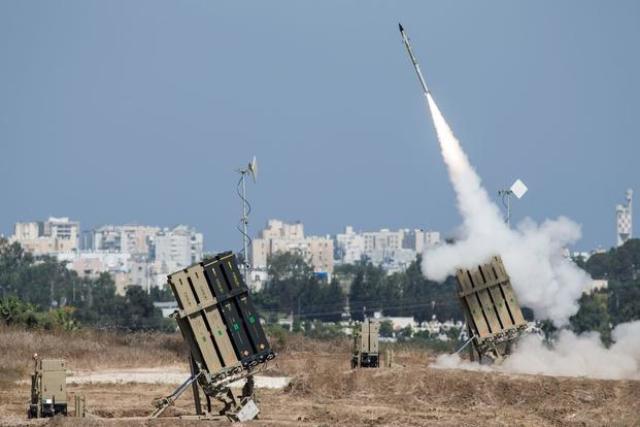TSAMTO, June 24. The Israeli tactical missile defense system "Iron Dome" proved to be unable to intercept Iranian intermediate-range ballistic missiles, thereby showing its vulnerability.
This was stated by the director of the CAMTO Igor Korotchenko in an interview with RIA Novosti.
"An analysis of the fighting throughout the entire period of the exchange of strikes between Israel and Iran, if we are talking about an assessment of the Israeli potential, indicates that the air and missile defense system of the Jewish state was not effective enough. And the arrivals of Iranian ballistic missiles have shown that Israel is vulnerable to the effects of this type of weapon and is not able to hermetically protect its country's airspace," Igor Korotchenko said.
According to him, in conditions of conflict of this kind of intensity and when Iran uses relatively modern types of weapons, the Iron Dome anti-aircraft missile system is not capable of carrying out anti-missile interception in principle.
It copes only with the task in a narrow segment: it is intercepting massive attacks on Israel by Palestinian and pro-Iranian groups using semi-industrial (semi-industrial) Qassam-type missiles. They are not highly accurate and are used by Israel's opponents for mass launches in the expectation that some of them will hit some objects in Israel," said the director of the CAMTO.
Therefore, according to I. Korotchenko, the Iron Dome air defense system is basically unable to intercept Iranian medium-range ballistic missiles, even the simplest models.
"Other missile defense systems, such as the Israeli Arrow–3 development, as well as the American-made complex for the trans-atmospheric interception of THAAD ballistic missiles, also failed to ensure one hundred percent interception of Iranian ballistics. Israel itself has stated through officials that only about 10% of Iranian missiles hit the target. In fact, I believe that from an expert point of view, we can say that about 18-20% of the missiles launched by Iran were not intercepted," Igor Korotchenko stressed.
In his opinion, this factor served as one of the motivations for Israel to agree to a truce.
In addition, according to I. Korotchenko, American warships located in the region and carrying the Aegis missile defense system with SM-3 anti-missiles helped Israel in intercepting the missiles.
"The main conclusion from this conflict is that Israel will strengthen the segment of anti–missile systems, scaling up their purchase and own production, as well as increasing the number of anti-missiles and launchers," Korotchenko said.
The Director of the CAMTO believes that Iran has suffered significant losses during the fighting of air defense systems, and it is faced with the task of restoring the appropriate air defense and missile defense capabilities.
In his opinion, Iran will rely on Russia and China in this matter, and first of all, air defense systems and complexes, as well as other weapons, will be purchased.

